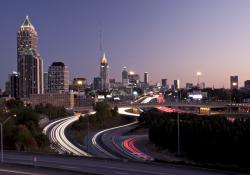RSS311 Bosch has announced it has manufactured 75 million ESP systems since series production began in 1995 – and in the process made a vital contribution to greater road safety. Especially on slippery roads and when entering a bend too quickly, the electronic stability programme keeps vehicles safely on track. In this way, it prevents skidding accidents, which can often be particularly severe. Summarising the findings of many studies of its effectiveness, Gerhard Steiger, the president of the Bosch Chassis Systems Control division, says: “After the seat belt, ESP is the most important safety system in cars, and has saved many lives over the past years.”
Bosch developed the anti-skid system, and in 1995 became the first company in the world to manufacture it in series production. “Since 2010 Bosch has been producing more ESP than ABS units,” says Steiger, in evidence of the global trend toward greater safety in cars.
The United Nations considers ESP an effective way of countering the expected increase in the number of road deaths in the years ahead. According to studies, this active safety system can prevent up to 80 per cent of all skidding accidents. This is why more and more countries are requiring new vehicles to be fitted with it as standard equipment. In Europe this is already the case for all vehicles whose type approval was granted after October 2011. As of November 2014 it will no longer be necessary to look for ESP in a vehicle's list of optional features, since from then on it will be fitted as standard equipment in all new vehicles throughout the EU. Even today, 72 per cent of all newly registered cars and light commercial vehicles in Europe are equipped with ESP. In the United States, it is already mandatory in all vehicles up to 4.5 metric tons. Similar regulations will come into force in the next few years in Australia, Japan, Korea, and Russia. Worldwide, 48 per cent of all new passenger cars and light commercial vehicles are now fitted with ESP; in China, nearly every fifth new car rolling off the production line features ESP.
Bosch developed the anti-skid system, and in 1995 became the first company in the world to manufacture it in series production. “Since 2010 Bosch has been producing more ESP than ABS units,” says Steiger, in evidence of the global trend toward greater safety in cars.
The United Nations considers ESP an effective way of countering the expected increase in the number of road deaths in the years ahead. According to studies, this active safety system can prevent up to 80 per cent of all skidding accidents. This is why more and more countries are requiring new vehicles to be fitted with it as standard equipment. In Europe this is already the case for all vehicles whose type approval was granted after October 2011. As of November 2014 it will no longer be necessary to look for ESP in a vehicle's list of optional features, since from then on it will be fitted as standard equipment in all new vehicles throughout the EU. Even today, 72 per cent of all newly registered cars and light commercial vehicles in Europe are equipped with ESP. In the United States, it is already mandatory in all vehicles up to 4.5 metric tons. Similar regulations will come into force in the next few years in Australia, Japan, Korea, and Russia. Worldwide, 48 per cent of all new passenger cars and light commercial vehicles are now fitted with ESP; in China, nearly every fifth new car rolling off the production line features ESP.











